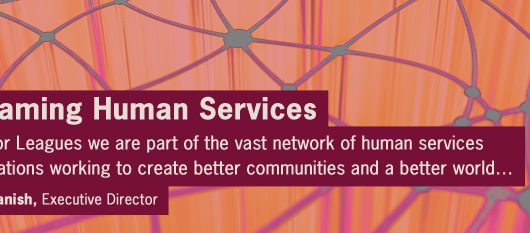“We have the responsibility to act, and we have the opportunity to conscientiously act to affect the environment about us.” That was how Mary Harriman described the mission of The Junior League more than 100 years ago. And if there is one way that The Junior League of today reflects The Junior League of 1901, it is in appreciating that responsibility and seizing that opportunity.
In those early days, it meant improving the day-to-day lives of New Yorkers in an age defined by first wave immigration and the perils of New York City tenement housing. Today, it means a diverse array of activity: convening community conversations on police practices and institutional racism, mentoring children in immigrant and low-income areas, training future leaders of local NGOs, bringing awareness to human trafficking, combating domestic violence and food insecurity, driving relief efforts whenever a natural disaster hits, and staying long after those natural disasters to rebuild communities.
And the constant throughout that nearly 120-year period has been The Junior League offering a platform for women to find their voice, harness their power and use that power for good. It has empowered women to speak up and to speak out. It continues to build the female leaders of today while inspiring the female leaders of tomorrow to drive change in their communities, as well as simply getting things done.
But the community of the 1901 Junior League does not resemble the community where The Junior League operates today. What started as an organization in one city has since expanded in scale to encompass 4 countries, 291 communities and nearly 150,000 members. While our members are deeply invested in strengthening the communities they live in, they are also deeply invested in helping communities beyond the borders of their hometowns and cities, as well as learning from the successes of Junior Leagues across the Association.
Add to this the fact that our focus areas are not only broad and deep but also complex and constantly evolving. Then, add that maintaining connectivity among our members to stay nimble, focused and active requires high speed and low friction. Finally, there is the simple fact that The Junior League of today has embraced diversity and inclusion as an essential commitment of our engagement and of our work to diversify our membership. Ultimately, it became clear we needed to make a change.
With this, we have launched 19/01—a micro-site you can access through our main site or directly at 1901.ajli.org—which we hope will service our readers in three ways. First, consolidating our content onto one site will make it easier and more efficient for members and non-members alike to find our offerings. Second, 19/01 will elevate Junior League leadership and members into thought-leaders by offering a platform to extend ideas and insights. Third, and most importantly, 19/01 will promote the incredible work members do every day to strengthen the political, social and cultural fabric of communities large and small, near and far. By making our members’ work a little more visible, their faces a little more recognizable and their names a little more well-known, we can inspire so many other people to follow their lead.
The work of today’s Junior League is the best reflection of a tradition that began in 1901: transformational female leaders who set bold goals, open their circles, disrupt convention and change the conversation for the betterment of civil society. The tradition of breaking tradition began in 1901. And it will be reimagined on 19/01.

